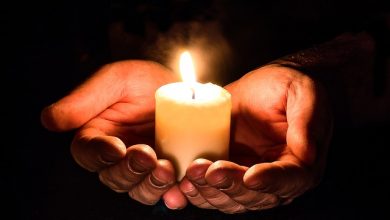Shabbat Afternoon High
By Ozer Bergman
Shabbat afternoon is the climax of the holy day, the
time we can achieve true closeness with God. The zemirot
(table songs) that we sing at the Third Shabbat Meal reflect
our desire and longing to consummate that relationship:
“Mizmor LeDavid” (God is my Shepherd) and “Yedid Nefesh”
(Soul’s Beloved). After disengaging from weekday grind
on Friday night, enjoying delicious meals and a refreshing
sleep, Shabbat afternoon finds us in full “Shabbat mode,”
open to experience the true meaning of the day.
* * *
Three tzaddikim passed away on Shabbat afternoon:
Moshe our teacher, who received the Torah on our behalf;
King David, author of Psalms, who personifies prayer; and
Yosef, the only one titled “Tzaddik.” The tzaddik, by virtue
of his morality and generosity, connects the brain and the
heart, Torah and prayer.
Shabbat afternoon is an et ratzon, a time of extra Divine
favor. It is a time when all that we know (Torah/Moshe)
and all that we feel (prayer/David) is meant to be awash
with the desire to meld into giving to Creation, receiving
from the Creator, and giving to His creation (the function
of the tzaddik/Yosef).
It is a time to rise and realize what Creation can be
before stepping back down into your body, ready to live
that promise. It is the time God commits to creating the
universe for another week.
* * *
Shabbat is an ideal time for hitbodedut. Rebbe Nachman
prescribes this practice of private prayer to God every day,
but Shabbat lends a special cast to the experience. Shabbat
and holidays were made expressly to give us a “day of rest,”
a day when making and taking the time to settle our minds
would be easier. The extra sanctity of these days adds
something to hitbodedut, even if you can’t always taste it.
The ultimate goal of hitbodedut is bitul (self-nullification
to God). One setting that is conducive to entering a state
of bitul is Shabbat. The quiet of Shabbat, provided by
refraining from the forbidden activities and ceasing to
think of weekday concerns, together with the additional
prayers that focus on the greatness of God’s work,
produces a great calm and yishuv hadaat (settled mind).
And Shabbat comes every week.
From “Where Earth and Heaven Kiss”
